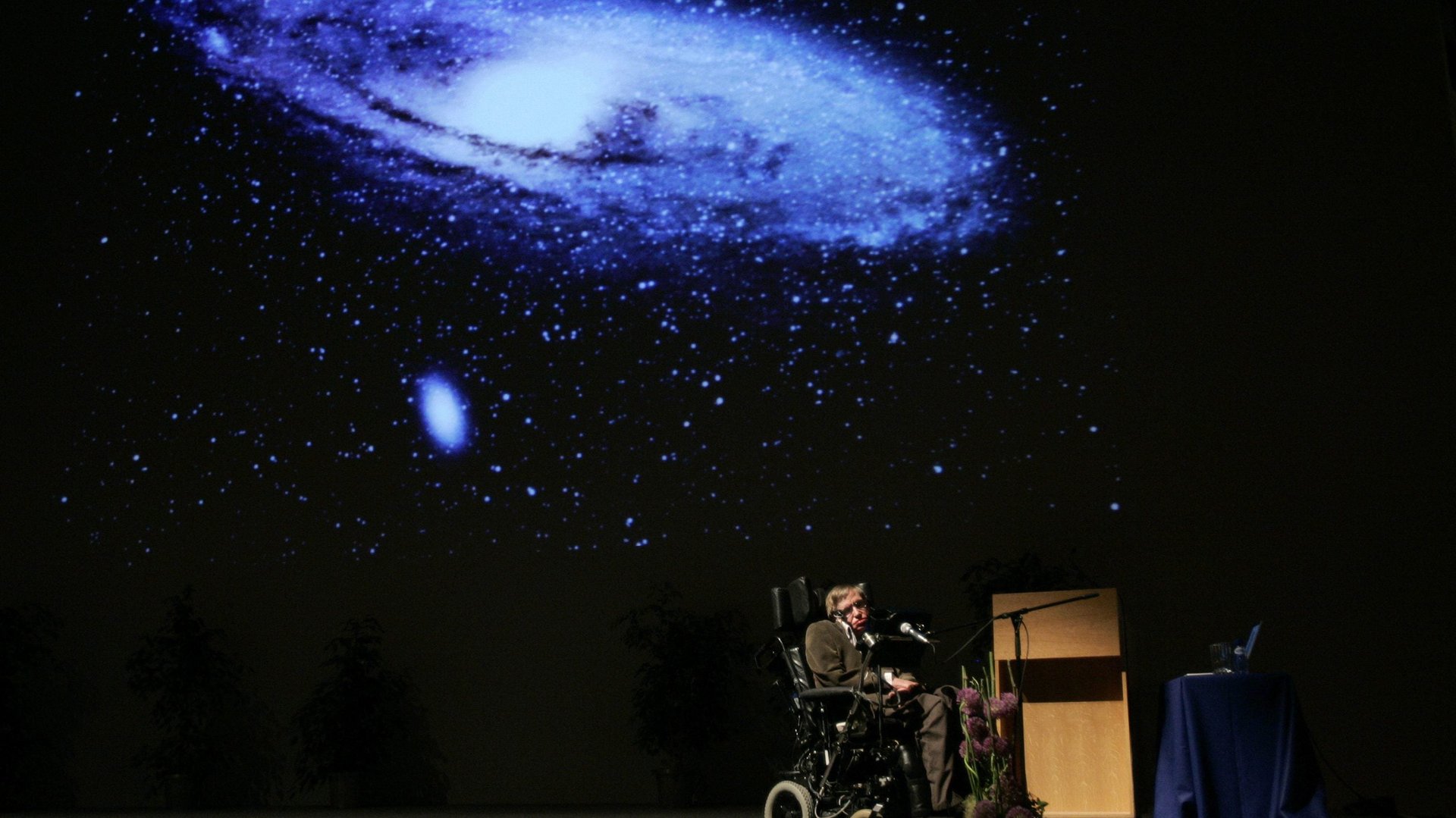Stephen Hawking was famous for studying space—but he cared even more about life on Earth
Stephen Hawking will be remembered for helping people appreciate the wonders of outer space. His groundbreaking research in merging concepts of quantum mechanics and Einstein’s theory of relativity changed our understanding of black holes, while his iconic book A Brief History of Time, which made lofty concepts about the history and nature of the universe accessible to popular audiences, has sold over 10 million copies since its publication in 1988 and been translated in more than 30 languages. ”Remember to look up at the stars and not down at your feet,” he famously advised.


Stephen Hawking will be remembered for helping people appreciate the wonders of outer space. His groundbreaking research in merging concepts of quantum mechanics and Einstein’s theory of relativity changed our understanding of black holes, while his iconic book A Brief History of Time, which made lofty concepts about the history and nature of the universe accessible to popular audiences, has sold over 10 million copies since its publication in 1988 and been translated in more than 30 languages. ”Remember to look up at the stars and not down at your feet,” he famously advised.
But much as the celebrated theoretical physicist, who died on March 14 at age 76, was intrigued by the mysteries of the universe, he often sounded even more invested in addressing the problems of life on Earth.
When Hawking wasn’t turning his attention to the stars, he was acting an outspoken public advocate on the human impacts of issues ranging from economic inequality to artificial intelligence and climate change. Writing for The Guardian in 2016, he warned that globalization and accelerating automation were likely to dramatically lower standards of living around the world in coming years, and urged elites and world leaders to work across national borders to address the issue:
With not only jobs but entire industries disappearing, we must help people to retrain for a new world and support them financially while they do so. If communities and economies cannot cope with current levels of migration, we must do more to encourage global development, as that is the only way that the migratory millions will be persuaded to seek their future at home.
Hawking was particularly concerned about the potential human costs of artificial intelligence, telling the BBC in 2014 that the technology could “spell the end of the human race.” His chief concern was that AI could escape people’s control: ”It would take off on its own, and redesign itself at an ever increasing rate. Humans, who are limited by slow biological evolution, couldn’t compete, and would be superseded.”
Climate change was another of Hawking’s frequent talking points. Responding to US president Donald Trump’s move to withdraw from the Paris climate agreement, he told the BBC, “We are close to the tipping point where global warming becomes irreversible. Trump’s action could push the Earth over the brink to become like Venus, with a temperature of 250°[C], raining sulfuric acid. Climate change is one of the great dangers we face, and it’s one we can prevent if we act now.”
These warnings might make Hawking sound as if he had a dour view of the future of humanity. And indeed, only last year, he suggested that humans needed to get off planet Earth within 100 years and find another planet to call home if our species was going to survive. But his hyper-awareness of the threats faced by humanity—many of them self-created—sprang from a fundamental appreciation for the miraculousness of life.
Indeed, in a 2013 interview with NPR, Hawking was asked what he would choose to study if he was starting his career over again in the present. His answer revealed a decidedly Earthbound preoccupation:
If I were starting research now, I might study molecular biology, the science of life. Crick and Watson discovered the double helix structure of DNA and the genetic code in 1953. I did not realize its significance in 1957 when I had to choose a science to specialize in.
In light of Hawking’s death, his many fans are posting tributes about the ways his work changed their understanding of their place in the universe. He surely wanted us to spend more time gazing at the heavens. But perhaps the best way to commemorate Hawking is to turn our attention to preserving life on Earth, while we still can.